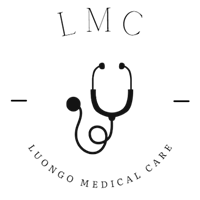What is High blood pressure?
High blood pressure (hypertension) is a common condition in which the long-term force of the blood against your artery walls is high enough to eventually cause health problems, such as heart disease.
Blood pressure is determined both by the amount of blood your heart pumps and the amount of resistance to blood flow in your arteries. The more blood your heart pumps and the narrower your arteries, the higher your blood pressure. A blood pressure reading is given in millimeters of mercury (mm Hg). It has two numbers:
- Top number (systolic pressure). The first, or upper, number measures the pressure in your arteries when your heart beats.
- Bottom number (diastolic pressure). The second, or lower, number measures the pressure in your arteries between beats.
You can have high blood pressure for years without any symptoms, which is why it is called the “silent killer”. Uncontrolled high blood pressure increases your risk of serious health problems, including heart attack and stroke. Most likely, prior to a stroke or heart attack, kidney damage signs of kidney damage such as protein in the urine and blood tests. Fortunately, high blood pressure can be easily detected. And once you know you have high blood pressure, you can work with your doctor to control it.
Symptoms of high blood pressure
Most people with high blood pressure have NO warning signs, despite having dangerously high blood pressure (Malignant Hypertension). Some will experience frequent headaches, shortness of breath, or nosebleeds. Most symptoms don’t occur until the blood pressure has reached a severe or life-threatening stage.
When to see a doctor for high blood pressure
Ask your doctor for a blood pressure reading at least every 2-3 years starting at age 18. If you’re 40 or older, or you’re 18 to 39 with risk factors for hypertension, check your blood pressure reading every year.
Blood pressure is determined both by the amount of blood your heart pumps and the amount of resistance to blood flow in your arteries. The more blood your heart pumps and the narrower your arteries, the higher your blood pressure. A blood pressure reading is given in millimeters of mercury (mm Hg). It has two numbers.
- Top number (systolic pressure). The first, or upper, number measures the pressure in your arteries when your heart beats.
- Bottom number (diastolic pressure). The second, or lower, number measures the pressure in your arteries between beats.
You can have high blood pressure for years without any symptoms. Uncontrolled high blood pressure increases your risk of serious health problems, including kidney disease, heart attack and stroke. Fortunately, high blood pressure is simple to detect.
Stages of Hypertension:
Normal: 120 mm Hg / 80 mm Hg
Stage 1: 130-139 mm Hg / 80-89 mm Hg
Stage 2: 140 or higher / 90 mm Hg or higher (consider blood pressure medication)
HYPERTENSIVE CRISIS: 180 or higher / 120 mm Hg or higher (see your doctor within 2 weeks)
5 WARNING SIGNS YOU ARE HAVING A STROKE:
- Sudden numbness or weakness of face, arm, or leg (usually one sided).
- Sudden confusion or trouble speaking
- Sudden vision blurriness or loss.
- Sudden dizziness, difficulty walking, loss of balance, coordination, weakness of hand or leg.
**We highly recommend having your blood pressure checked over the age of 18 if family history of hypertension, are obese, of over the age of 40. You can begin by purchasing a high quality automatic blood pressure machine such as the OMRON 3 Series / Bronze “Upper Arm” blood pressure machine.
